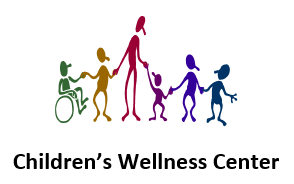Balancing the protection of children from the world’s dangers while helping them learn how to navigate the world safely is a parent’s responsibility. We live in a big world, and the internet has made it feel even bigger and scarier for parents who are concerned about the safety of their children and teens while navigating the world of social media.
Social media can be good for a teen’s development, providing them with opportunities to communicate with their peers and learn how to navigate complex relationships. Some social media platforms have even been developed specifically for children. However, social media can also make children vulnerable to online dangers like cyberbullying and predators while also putting their privacy at risk. Additionally, social media use has become increasingly associated with depression and anxiety in adolescents.
It is up to parents to ensure the safety of their children online and on social media, and this can be established by fostering a positive relationship with children in addition to setting healthy rules and limits around social media use.
The Importance of Communicating Openly With Kids About Social Media
As in every aspect of parenting, communication and fostering a trusting relationship is key to helping kids use social media responsibly. Parents should educate themselves about the various social media platforms so that they are prepared to talk with their children about social media use. Ask your kids why they want to participate in social media and how they plan to use it.
Additionally, if your child is old enough to use social media, then they are old enough to learn about the risks associated with it. Talk openly about the dangers of social media, including predators, privacy concerns, scams, cyberbullying, addiction, and depression. It’s important to help your child understand the addictive nature of these platforms’ features and the risks they pose to self-esteem (for example, the culture that exists around gaining likes and comments).
While communication should be based on trust, it’s always good to verify what features are actually offered by the platforms your children use and look into how your children are using these platforms.
Most importantly, recognize that, with the prevalence and popularity of social media, your child’s eventual participation is inevitable. Don’t force them to sneak or hide their social media use from you by forbidding it. Instead, focus on talking openly with your child so that you can be there to educate them and protect them.
Monitoring and Setting Limits on Social Media Use
There are several strategies and approaches to monitoring social media use and setting limits.
Establish Ground Rules
Parents should establish social media use rules that the whole family follows. This should include guidelines for the amount of time spent on social media, hours when social media can be accessed, the types of things that are shared on social media, the kinds of people we are allowed to connect and communicate with, and the platforms children are allowed to use.
Privacy Settings
Parents should set up privacy settings for their children’s social media accounts. Discuss these settings and their importance with your children. We recommend setting these at the most secure level.
Use Parental Controls
We recommend that parents establish these rules on an honor system while letting their children know that if the rules are violated, parental controls will be put in place. Accessing social media is a privilege and parents must be able to trust the judgement of their children to allow them access to these platforms. If trust is broken, parental controls can be used to limit access to the internet, limit access to social media sites, or limit access to social media sharing.
Stay Vigilant
When children start using social media, it’s important for parents to stay vigilant and keep a close eye on their children for any warning signs of potential negative impacts. Behavioral red flags can include a significant increase in screen time, withdrawal from regular activities, unusual quietness, secrecy around their devices, and secrecy around social media use.
Set a Good Example
One of the best ways to teach your child responsible social media use is to set a good example with your own behavior. Limit the time you spend on your phone, prioritize in-person interactions and activities, and act safely within your own social media accounts.
Learn More About Helping Kids and Teens Develop Healthy Internet Habits With Children’s Wellness Center
At Children’s Wellness Center, our healthcare professionals are here for you and your family. We understand that in the modern world, health extends beyond the body with factors like internet use, social media, and screen time impacting childhood happiness and wellness.
If you have any questions about keeping your children safe and healthy while navigating social media, please contact us.

